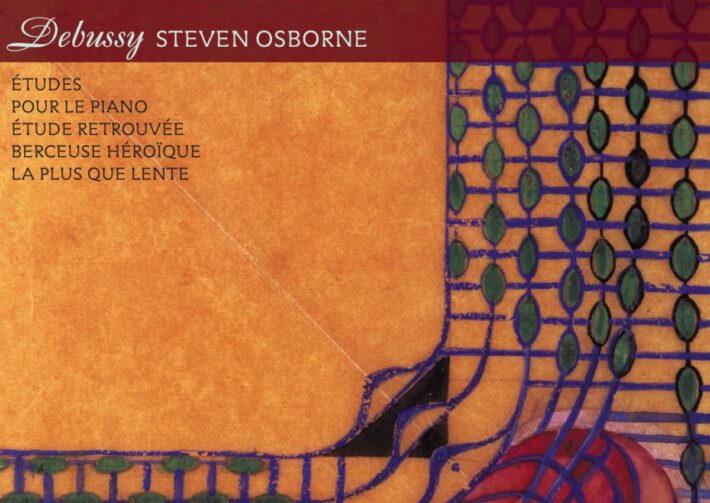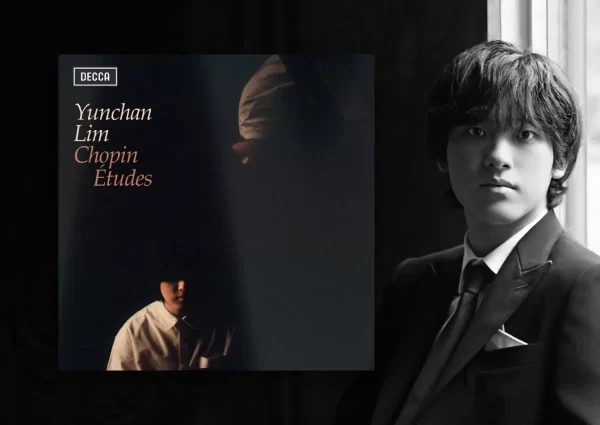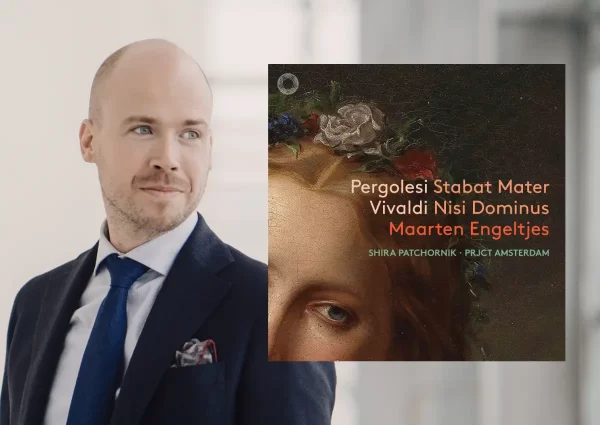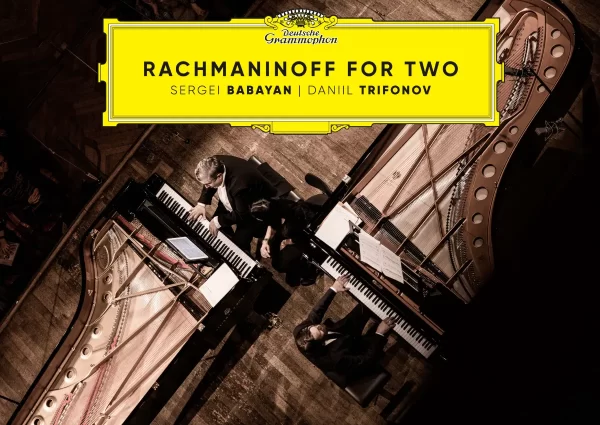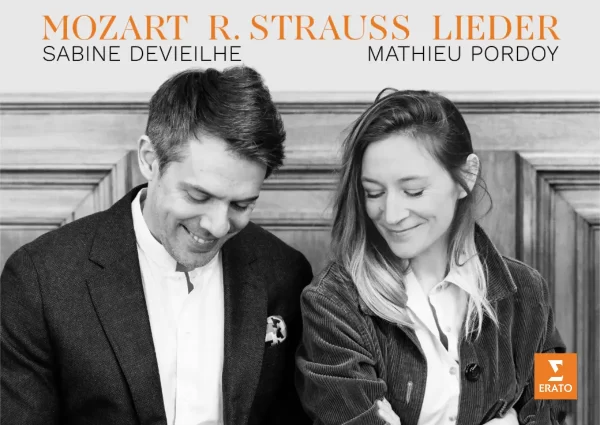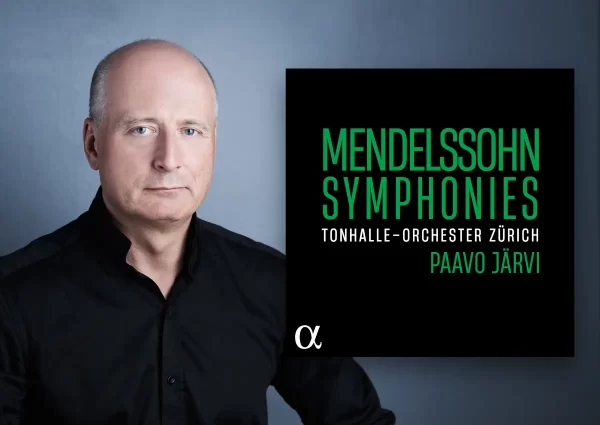Claude Debussy famously quipped that the Etudes, which make up the majority of this album, were a ‘warning to pianists not to take up the musical profession, unless they have remarkable hands’. A daunting warning label? Maybe, but it depends on the performance.
The first étude commences with the famous 5-finger exercise motif (à la Carl Czerny) whose particular interpretation I regret to say I am not a fan of. What should be deliberate and almost childlike (something that Gieseking’s classic recording does effectively) is disappointing in its banality—where is the much needed humor? The quirky and stubborn sparks of dissonance also instead sound aggressive and even a bit angry. Steven Osborne’s clarity and facility are evident; however, the levity that makes for a convincing performance is something I could not find.
The Etude for Thirds does have some nice work in voice-leading, but I again felt a similar lack of inspiration. Part of it has to do with the tempo—as a matter of personal taste it is on the measured side, which obscures the intervallic movement when it drifts into the middle and lower registers. But more importantly, there’s also the matter of innovative interpretation. Osborne’s articulation is a pleasing but more or less a uniform sostenuto. Though this isn’t wrong per se, listen to Mitsuko Uchida’s version and you’ll see the rewards of taking more creative risks. We can hear the invigorating shifts between meandering sostenutos and spunky staccatos that bring out the work’s inquisitive playfulness.
Pour les quartes (track 3) fares better in vibrancy, as the pianist creates sharp peaks and mellow dips between different phrases. This couples well with the naturally intriguing sound of parallel fourths. Pour les sixths that follows is also nice: hear how Osborne demonstrated his responsiveness in the softer passages, especially as he gravitates toward tenderness in the more open tonalities.
Related Posts
- Review: Messiaen – Vingt Regards sur l’Enfant-Jésus – Bertrand Chamayou, Piano
- Review: Debussy – Fantaisie, Violin Sonata, Cello Sonata, La Mer – Argerich, Soltani, Barenboim
- Debussy – Préludes – A Beginners Guide
- Review: Debussy – Images – Hallé, Sir Mark Elder
One thing that occurs across all the etudes is the issue of the louder sections, where I’ve had to turn down my volume to mitigate the harshness. I don’t know whether it’s an issue of the method of attack or, more unfortunately, the natural temperament of the piano itself, but the sounds come across as quite jarring. This issue comes to a head in the Etude for Octaves (track 5): although the piece calls for an enthusiastic and extroverted dance-like swing, I found it rough and unbridled. The Pollini recording (DG) brings the vivacity but with phrases better managed and complementary to the rhythmic lilts.
Les Huits Doigts (track 6) might well call to mind Debussy’s prelude, Feux d’Artifices, as both portray the capricious and sometimes tempestuous nature of fireworks. Osborne’s performance here is thankfully spot on: we’ve got the sizzling buzz that erupts into short but fierce crackles. All the while, though, the fluidity of his fingerwork provides the right amount of continuity. Pour les arpèges composés (track 11) bears some similarity in terms of the lush sweeps, which he again executes well. That he doesn’t make them overly granular helps us perceive the arpeggios both as dynamically evolving harmonic moments and melodic textures.
It’s a fortunate thing that Pour le Piano is featured on the disc, as this is this where Osborne does his finest work. The finesse and vitality that I had been seeking in the Études is definitely present here. The Prélude (track 13), for instance, derives its excitement from the theme that edges forward urgently against the undulating accompaniment. The ferocity that had been out of place in the aforementioned études finds its place here in the energetic bursts (0’53”). The Sarabande captures Debussy’s trademark atmospheric sound but is beautiful and expressive where it needs to be. A few sound quality issues aside, the Toccata is spirited but not overly frantic with its clarity and suitable choice of tempo.
Though credit is due for a performance of a challenging set, I did find it very hit-or-miss across the board. There are certainly things to appreciated in Osborne’s playing, but not often enough to change any of my primary recommendations.

Debussy: Etudes & Pour le piano
Steven Osborne – Piano
Hyperion, A68390
Recommended Comparisons
Uchida | Pollini | Gieseking | Thibaudet
Read more classical music reviews or visit The Classic Review Amazon store
Follow Us and Comment:
Get our periodic classical music newsletter with our recent reviews, news and beginners guides.
We respect your privacy.

